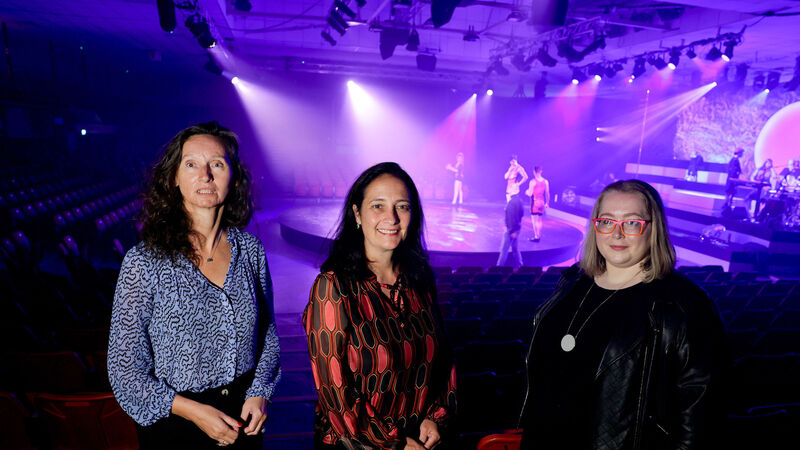Failure to means-test €325 weekly payment for artists draws criticism

Arts Minister Catherine Martin announces the awarding of 2,000 grants for artists and creative arts workers, along with Arts Council director Maureen Kennelly and, right, Fringe Festival artistic director and CEO Ruth McGowan at the National Stadium. Picture: Maxwells
A new pilot scheme which will see 2,000 artists receive €325 per week for three years has been hit with criticism as successful applicants were not means-tested.
Arts Minister Catherine Martin has moved to defend the basic income scheme which saw more than 9,000 applicants.













